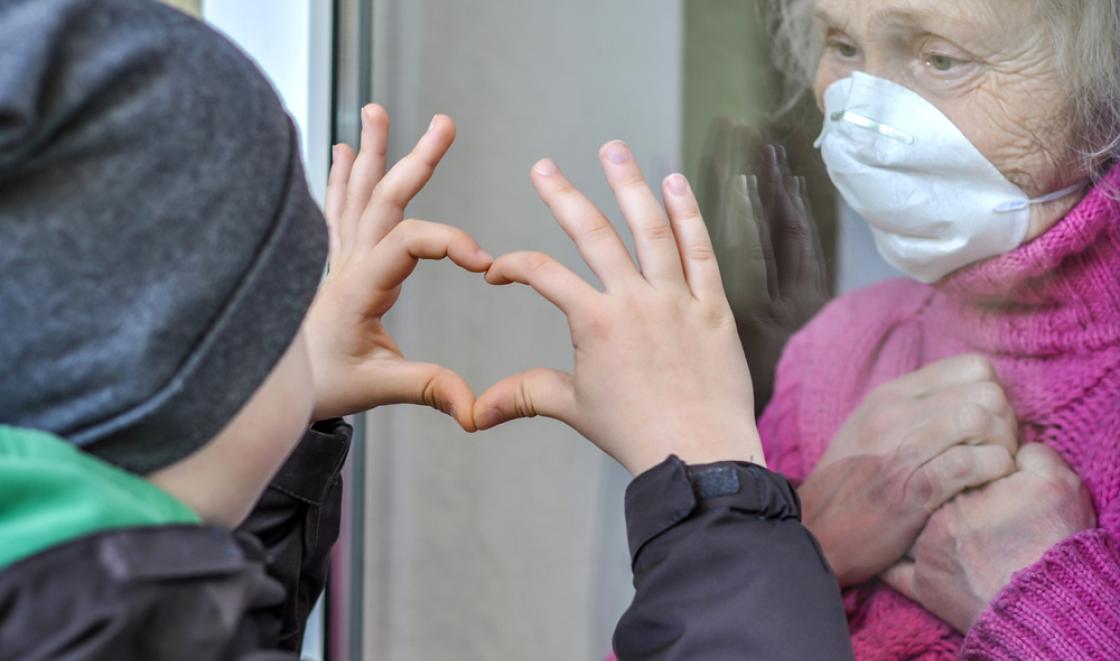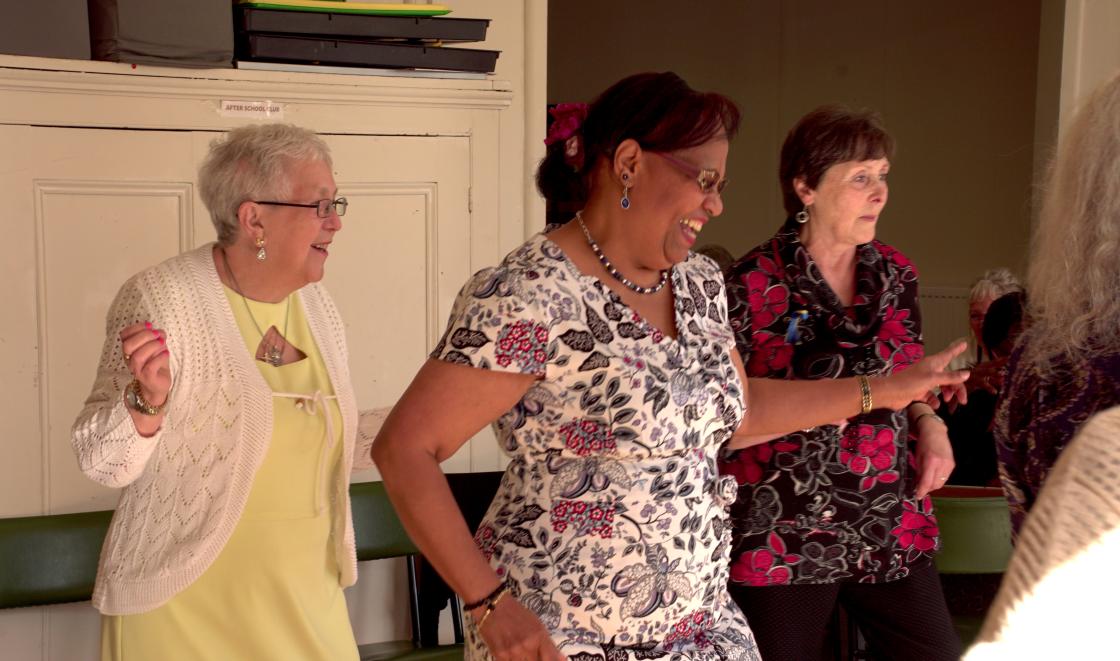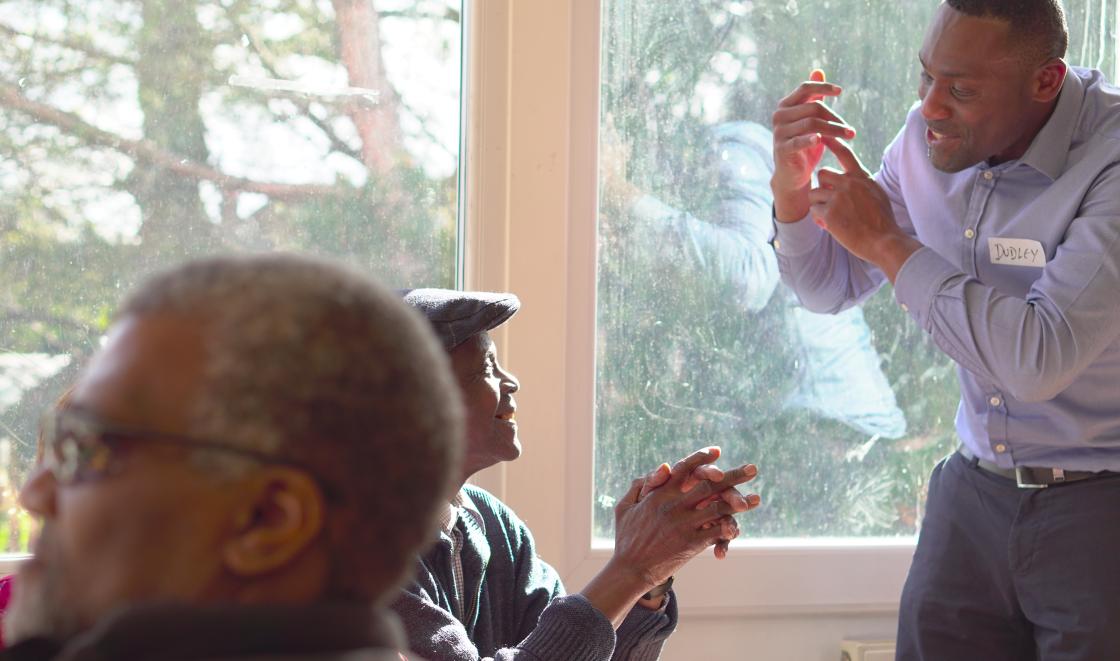We need workable solutions that support care providers with managing competing risks at the same time as ensuring that care home residents have guaranteed access to social connections and meaningful opportunities for social and public participation.
Effects of visiting restrictions on care home residents’ mental health
Loneliness and social isolation are factors well known to have a severe negative impact on the physical and mental health of any person. Depression, schizophrenia and other mental health conditions can develop or become worse in a person who is lonely and socially isolated. Older people who are frail and living with long-term health conditions are at particular risk of experiencing social isolation and loneliness if cut off from social networks and community activities. On the flipside, the value of meaningful social connection, a sense of purpose and belonging for mental health is immense.
As Covid-19 emerged, the threat posed by it to older people was quickly apparent. Care homes ‘locked down’, with no visitors allowed, a situation that was set to stay longer for many residents compared to the rest of society. Even two years after Covid-19 first emerged, there are still care homes which find themselves in full ‘lockdown’ after positive Covid-19 cases, leaving residents cut off from the rest of society. Academic studies in the UK and from other countries with similar care home visiting policies have provided some evidence for the downward spiral in the health and wellbeing of care home residents, relatives and staff. In particular, research shows that:
Social isolation and loneliness is harmful and has increased among the care home population
Chronic social isolation and loneliness is harmful to peoples’ health and a factor for premature death. An academic study from Ireland, for example, provides evidence that higher levels of social isolation and loneliness among people aged 50+ during the Covid-19 social restrictions led to a higher risk of dying from any disease. A Dutch study showed that feelings of loneliness and social isolation increased in care home residents when cut off from family members in the first lockdown. People living with early-stage dementia or without any cognitive impairment were particularly aware of the restrictions. According to a study from Israel, residents felt that they “have become prisoners of their own age” and were unfairly treated.
People living with dementia suffered disproportionately
People living with dementia are one of the groups who were hardest hit by the Covid-19 pandemic and the restrictions. Daily routines, activities and regular social contact is important to people living with dementia. A review of multiple international studies published in The Lancet collected evidence to show that isolation under Covid-19 rules made symptoms in people living with dementia worse and more dependent on their carers for day-to-day activities. The study also reported that people living with dementia were more depressed or anxious without their routines. According to the Office of National Statistics, dementia remained the leading cause of deaths amongst English care home residents during the first and second lockdown.
Effects of restrictions on professional carers and relatives
The wellbeing of professional carers and relatives in care homes also suffered under visiting restrictions. Several studies from the UK reported that professional carers struggled to keep up with changing visitor guidelines. According to one article, relatives felt “frustrated and angry” about restrictions continuing even after having been fully vaccinated.
Lessons for the future
There are many lessons to learn from the pandemic. But in terms of protecting the right to social participation, the right to family life and the right to health as directly linkable to social isolation and loneliness in care homes, these two lessons stand out:
A right to maintain contact
Care home providers and their staff faced extraordinary challenges to protect the health of their residents, especially before in-depth knowledge about Covid-19, the availability of testing and vaccinations. In March 2021, the Department of Health and Social Care introduced the ‘essential care giver’ status into their visiting guidance for care homes, under which each care home resident is allowed one nominated person to visit without many limitations, even during a care home lockdown. This was intended to alleviate some of the harmful effects of visitor restrictions on residents and their families and thus presented a compromise. However, care home providers were never freed from their duty of care to protect residents from infection and death. The application of the essential care giver role was slow to take hold. A right to maintain contact as enshrined in law could help to ensure that residents with families will not face a situation again in which they are cut off and care home providers could be supported by law to counterbalance their duty of care.
Social and public participation of care home residents
The right to participate in social and public life is enshrined in international human rights law, including the United Nations Convention on the Rights of People with Disabilities. Every country is obliged to ensure that these rights are protected, respected and implemented for everyone, yet in care homes we know that meaningful participation in social life is often missing. The care regulator, the Care Quality Commission, does not inspect for activities and mechanisms to engage residents. Again, this must change in view of what we have learned regarding the importance of social and family connections for the mental and physical health of care home residents.
The NIHR ARC South London in February 2022 supported a letter by a coalition of organisations addressed to local health and care leaders calling on them to end harmful isolation and to help promote the rights of people in care homes. It also supported a joint call led by the Relatives and Residents Association and the Rights For Residents Campaign to legally enshrine a right to maintain social contact across health and care settings.
Supporting social connections
This piece marks Mental Health Awareness Week 2022 (9-15 May), the theme of which is the impact of loneliness on mental wellbeing and how we can address it. Within the social care theme at ARC South London we are taking positive actions towards making social connections and participation happen, supported by the ARC's Involvement Fund. We recently held a tea dance event at Stanstead Lodge Seniors Club in Catford (pictured below) to explore ideas around a human right to social care, engaging with a diverse group of carers and social care users.


